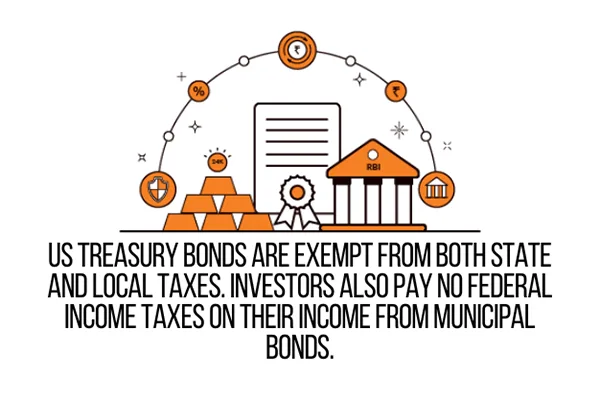Expert Tax Strategies to Optimize Your Golden Years
So, you’ve been saving diligently for years and investing for your retirement.
It is now time to turn your attention to what you’ve always dreamed of, relaxing, following up with your passions, and enjoying the fruits of your labor.
Preparing for retirement is a pretty huge milestone for anyone, and as you get near this milestone of saving each penny, you need to understand the benefits of careful tax planning to secure your finances through your golden years.
In this article, we will explore some of the effective tax strategies that retirees can use to secure their financial situation during their retirement.
These tips can help you pretty much optimize your retirement savings and reduce any tax burden on your finances so that you can have an enjoyable retirement without worrying about money.
Maximize Retirement Account Contributions
One of the most popular methods of minimizing your taxable income in retirement involves optimizing your contributions to retirement accounts like 401(k)s and IRAs.
By maximizing the allowable contribution limits, you can tap into the benefits of tax-deferred growth and effectively decrease your tax obligations.
DID YOU KNOW?
Having a mix of retirement assets in tax-deferred, tax-free, and taxable accounts can help you have more flexibility when economic conditions change.
Consider Roth Conversions
You know, Roth conversion is a pretty great strategy for retirees with traditional retirement accounts.
By converting a segment of your traditional IRA or 401(k) into a Roth IRA, you can pretty much make tax-free withdrawals during your retirement.
Although you will pay taxes on the converted amount upfront, this strategy can lead to considerable tax savings in the long run.
Manage Your Withdrawals
Strategically speaking, managing your withdrawals from retirement accounts can help you control your tax liabilities.
You need to think about withdrawing from your taxable accounts first, then tax-deferred accounts, and finally tax-free accounts.
This approach can minimize your overall tax burden while ensuring a steady income stream.
Utilize Tax-Efficient Investments
Typically, the type of investments you make can pretty much influence how much tax you need to pay through your retirement years.
If you opt for tax-efficient investments, like index funds or ETFs, which typically generate fewer capital gains.
So, by minimizing these taxable events in your portfolio, you can reduce your tax liability.
Take Advantage of Tax Credits
Did you know that retirees are also eligible for various tax credits to reduce their tax bills even further?
Some common credits include the Retirement Savings Contributions Credit (Saver’s Credit) and the Elderly and Disabled Credit.
So, if you have the chance, be sure to explore all available credits to optimize your tax situation.
Leverage Health Savings Accounts (HSAs)
Health Savings Accounts (HSAs) can also be a pretty powerful tool for retirees.
Contributions to HSAs are tax-deductible, and withdrawals for qualified medical expenses are tax-free.
So, even after you retire, you can use your HSA funds to cover medical costs, making it a tax-efficient way to manage healthcare expenses.
Plan for Required Minimum Distributions (RMDs)
Well, once you reach the age of 72, you are required to take annual distributions from your traditional retirement accounts through Required Minimum Distributions (RMDs).
And if you fail to take your RMDs, it can result in some pretty huge fines.
However, careful planning can help you manage these distributions and minimize their impact on your taxes.
Use Charitable Giving
You need to think about adding some charitable giving to your retirement tax strategy.
By donating some of your appreciated assets or using a qualified charitable distribution (QCD) from your IRA, you can get tax benefits while supporting causes you care about.
Charitable contributions can also help you meet your RMD requirements.
Optimize Social Security Benefits
The timing of your decision to claim Social Security benefits can also have an impact on your tax situation during retirement.
So, if you delay your Social Security benefits, you can easily increase your monthly payments.
This is particularly beneficial for those with additional income sources.
And, if you are still confused, then you can seek advice from a professional advisor to get the most optimal strategy tailored to your specific financial circumstances.

Consult a Tax Professional
Navigating the complexities of tax in retirement can be daunting.
Seeking the guidance of a tax professional or financial advisor with expertise in retirement tax strategies is a wise decision.
They can help you create a customized plan tailored to your financial goals and ensure compliance with tax laws.
Conclusion
As you embark on your retirement journey, effective tax planning and implementing these expert tax strategies can substantially improve your financial security and peace of mind during your golden years.
By maximizing contributions to retirement accounts, strategically managing withdrawals, and taking advantage of tax-efficient investments and credits, you can optimize your tax situation and enjoy a more comfortable retirement.
You need to keep in mind that a good professional can also help you in creating a personalized retirement tax strategy that suits your unique circumstances.









